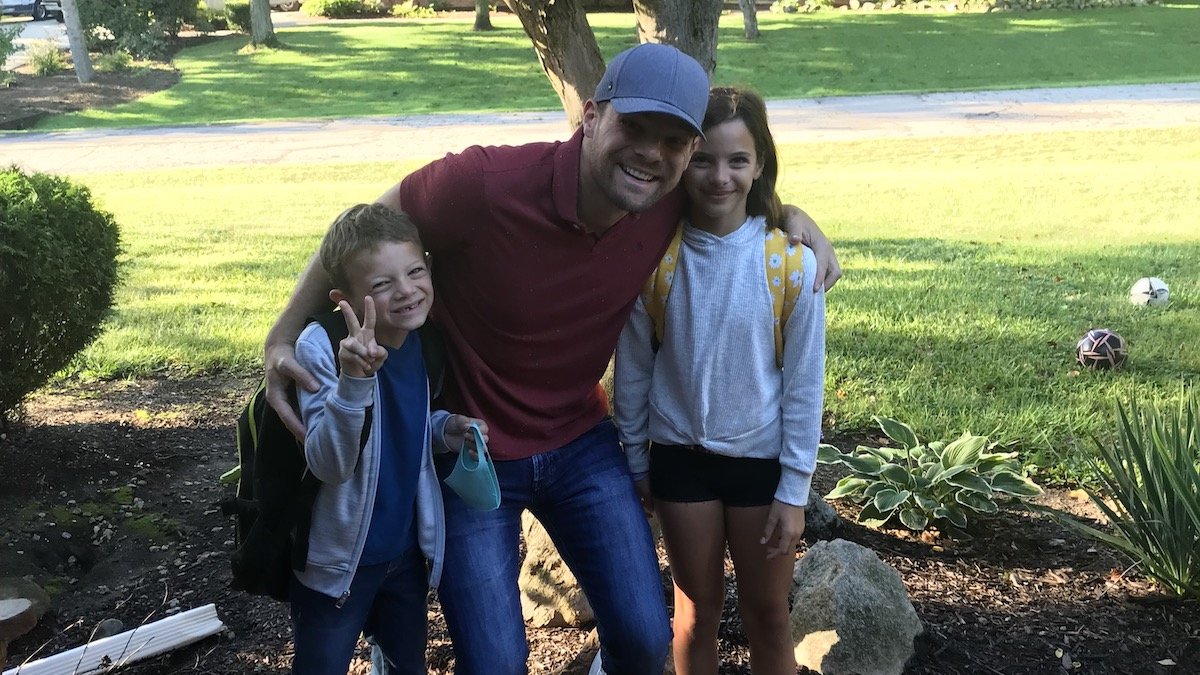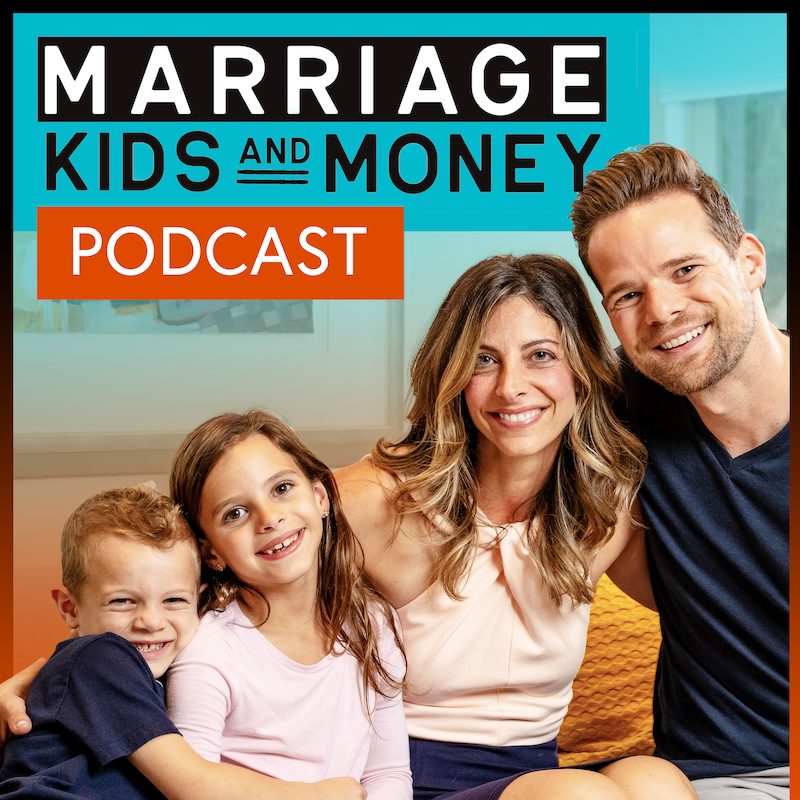Receiving an inheritance or a cash gift from a family member can be a beautiful blessing on your financial journey.
Also, this new experience can leave you wondering about the best way to use this money.
Brian, a listener of the podcast, is wondering the same thing right now.
I have a question regarding a gift I received from my grandmother.
Your story about your mother-in-law's $30,000 inheritance and setting it aside for future back-to-school shopping to keep her memory alive was cool.
I was thinking about opening accounts with Vanguard to start investment portfolios for each of my 3 kids.
Would it make more sense to open an IRA for their future retirements or just a brokerage account that they can each have as a nest egg?
My kids are 13, 11 and 6. My hope was to start an account now so when they start working and earning they can invest in their own accounts.
I understand you're not my financial advisor so you don't have to answer but I thought it would be worth asking your opinion.
This is one of my favorite topics so I’m glad you asked this question.
It sounds like your Grandma is an incredibly kind and generous woman. What a beautiful legacy she’s leaving to you and your kids.
For those that don’t know our situation with the inheritance you mentioned, I thought I’d share that story first and then answer your question second.
Our Family's Experience with Losing a Family Member and Gaining an Small Inheritance
So in 2019, my mother-in-law was diagnosed with stage 4 cancer.
She was in her early 70’s so this was unexpected and quite devastating to all of us because Hana was a big part of our lives.
Hana was the kind of person that brought the entire family together. Big Chaldean dinners with her family, our family, and loads of cousins. This wasn’t something I had experienced as a child so having our kids grow up with dozens of cousins, aunts, and uncles near home is a special thing.
She also just loved being a Grandma and spending time with our children.
One of her favorite things to do was to give generous gifts. This was one way she showed expressed her love.
When it was back-to-school time, she wanted to be the one to take our kids clothes shopping so they had nice outfits for their first day. That made her feel happy.
Unfortunately, just a few short months after her cancer diagnosis, she passed away.
The whole family was crushed.
Hana was a big part of our lives and it just hasn’t been the same without her.
To help keep part of her memory alive, Nicole and I decided to use the $30,000 of inheritance money she left to us and invest it. That way, we could use the dividends to support activities that Hana loved.
So in the fall, we use the dividends to pay for back-to-school shopping for our kids.
And in the winter, we like to pay for a big family dinner where everyone gets back together, just like Hana would have done.
By doing this, we feel like we’re honoring her legacy of family, generosity, and love.
So, how did we invest the $30,000 inheritance?
Well, for starters, this isn’t advice on how you should do it because past results don’t predict future results and all that red tape stuff … That aside here’s what we did.
Oh, and Brian, I believe this process will help answer your question too.
1. Understand the Impact of Gift, Estate and Inheritance Taxes
In our state of Michigan, there were no estate and inheritance taxes that we had to deal with. It’s a perk of living in this great state.
But surprisingly, this is quite common around the country. There are only 11 states that have an estate tax: Connecticut, Hawaii, Illinois, Maine, Massachusetts, Minnesota, New York, Oregon, Rhode Island, Vermont and Washington. Washington, D.C. does, as well.
So, if you don’t live in one of these states, it sounds like you’re golden. If you do, meet with an estate tax professional to help you better understand your situation.
In your case Brian, if your Grandma wants to give cash gifts while she’s still alive, a tax-free giving method to consider is the annual gift tax exclusion. In 2021, the exclusion limit is $15,000 per person, and in 2022, it goes up to $16,000.
If Grandma wants to give more than $15,000, consider having Grandma give increments of $15,000 to you, your spouse, and each of your kids to avoid any tax issues.
2. Pick a Low-Cost Brokerage Partner
We went with Vanguard for our investment partner because we had been working with them for our investment accounts already.
I knew the interface well and understood how to keep the process simple.
If you don’t already have a brokerage partner you like, consider one of these 5 best investing apps. They are keeping the process simple, low cost and their apps are all intuitive.
Even Vanguard’s app is awesome now. I didn’t say that a few months ago, but they just made an update and it’s slick.
Brian, if you want some support with the entire process, I’d suggest meeting with a fee-only financial planner that is a sworn fiduciary. A great resource for this is XY Planning Network — this is a network for fee-only CFPs that I recommend. A good amount of those CFPs have been guests on this show already, like Ashlee deSteiger.
3. Decide How You Want to Invest the Money
We decided to invest the money in a taxable brokerage account in Nicole’s name. That way, we could use the money for the purposes I mentioned above.
To create some semi-consistent annual income with the investment, we decided to invest in Vanguard’s High Dividend Yield Index Fund (ticker symbol: VHYAX).
This fund invests in larger companies like Chase, Johnson & Johnson, and Home Depot that provide a nice dividend.
And our plan has worked over the past two years fairly well. Not only has the dividend been able to provide us with $300-$500 per quarter, but the overall account balance has grown as well.
The balance has grown from around $30k to now around $40k in about two years. The market has been good to this Grandma Hana fund!
In your situation Brian, I’d suggest you think about your goals for the money.
Do you want them to get a leg up on retirement so time and compound interest can really do their magic? Well, I’d suggest a Roth IRA for that, but your kids need to have earned income to contribute there.
If they don’t have earned income, but you want them to start investing, check out a kids brokerage account. Vanguard can help you with this. I have one for each of our kids as well. The accounts don’t have much in there, but it helps me have conversations with my kids about the importance and the impact investing over the long term can have on their future.
As far as what we’re going to do with that money … I’m not sure right now, but I like defining the use otherwise, you lose interest in investing. Like … “investing for what? Why am I investing?”
Investing for the crazy costs of college is also not a bad idea to consider as well, Brian! Using a 529 college savings account makes this process simple.
4. Stay Consistent with your Investment Decision
However you choose to use the money, I’d recommend sticking with it for the long term.
Investing sees its major benefits when you let time and compound interest do their magic.
So if your 13-year-old does have earned income and you want them to start investing for their retirement, get that Roth IRA opened, invest and encourage your child that this is for their retirement 50 years from now and nothing else.
The same goes for the 529 college savings account … we’re using this for college and that’s it.
Invest with a purpose and stick to it.
We’re doing the same for our Grandma Hana money. That way, it’s always there and her awesome traditions live on.
5. Throw More Wood on the Fire
If you like the plans and traditions you’ve set up with your inherited or gifted investments, add more money to them when it becomes available.
The more contributions you add, the larger your accounts can grow and help you achieve your goals faster.
There was a point in time during the pandemic when the market was doing well and we didn’t need new back-to-school clothes because the kids were in pajamas at home!
We took some of those dividends and just reinvested them to grow the account further.
Perhaps a portion of your kid's earnings in the future goes to these investment accounts. That way, the accounts grow and their investment knowledge grows too.
I’m sure that would make Grandma proud Brian!
Final Thoughts on What to Do With a $30,000 Inheritance
Well, those are my ideas for you Brian. I hope they help you as you decide how you want to use this money.
Grandma sounds like an awesome lady!
One more piece of advice … Create some memories with Grandma and your kids with some of that money while she’s still with you. Those memories will be more precious than any money she gives to you.
That’s how I feel about Hana. We love her gift to us, but we loved her even more.
What would you do with a $30,000 inheritance? In what ways would you honor their legacy?
Please let me know in the comments below.


